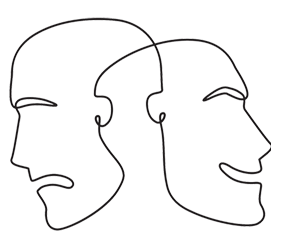Negative Self-Talk
Breaking Negative Self-Talk
The good news is that negative thought patterns and behaviors can be addressed and improved.

overview
Negative Thought Patterns & Behaviors
Negative thought patterns and behaviors can be detrimental to our mental health and wellbeing. We all experience negative thoughts and emotions at times, but when these thoughts become habitual and automatic, they can lead to a cycle of negative thinking and behavior that can be difficult to break.
Catastrophizing is a common negative thought pattern that can leave us feeling overwhelmed and helpless. It can make us believe that the worst possible outcome is inevitable in every situation, leading to unnecessary stress and anxiety. All-or-nothing thinking can also be problematic, as it can make us feel like a failure even when we have achieved success. Overgeneralization is another negative thought pattern that can lead us to believe that a single negative event is indicative of our entire future.
Personalization is a pattern of negative thinking that can lead us to blame ourselves for everything that goes wrong, even when we are not at fault. Negative self-talk is also a common behavior that can leave us feeling powerless and inadequate. Finally, avoidance can lead to social isolation and a lack of fulfillment, as we avoid situations that may be challenging or uncomfortable.
The good news is that negative thought patterns and behaviors can be addressed and improved. Through cognitive therapy and other forms of therapy, individuals can learn to identify and challenge negative thoughts and beliefs, developing more positive and adaptive ways of thinking and behaving. Self-help strategies such as mindfulness, meditation, and journaling can also be helpful in promoting positive thinking patterns and behaviors.
By breaking free from negative thought patterns and behaviors, individuals can achieve improved mental health and wellbeing, leading to a more fulfilling and enjoyable life.
Let's Talk
You will receive a 15 minute phone call from our group leader, as an introduction to the program and to discuss suitability. This is free and without obligation.


















